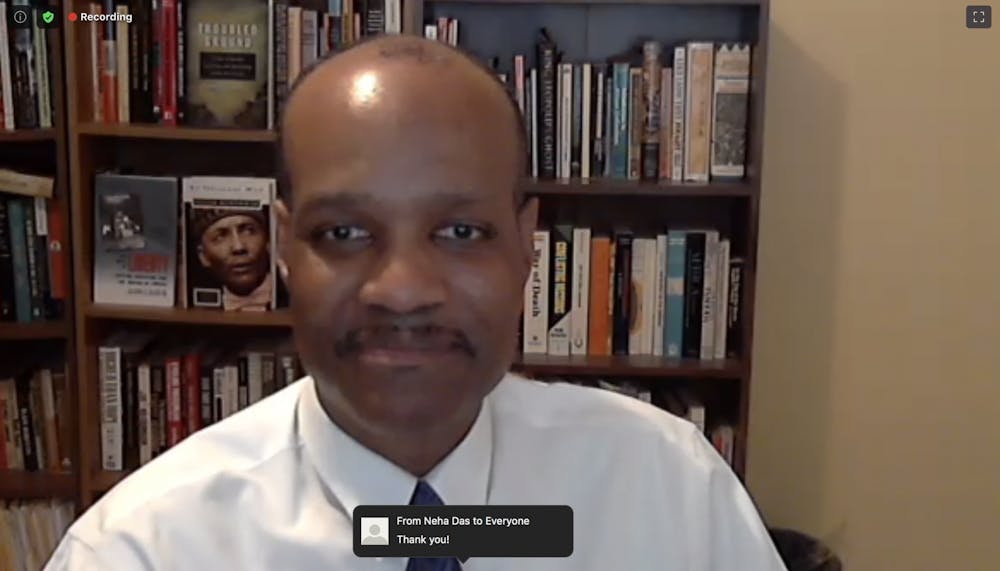Several members of the Department of African, African American and Diaspora Studies gathered Friday, June 19 for a moderated online forum about the history and context of racism, police brutality and the criminal justice system in the United States.
Professors Kia Caldwell, Claude Clegg, Kenneth Janken and Ronald Williams II of the AAAD department covered topics including UNC's past with racial justice, the scope of systemic racism and examples of state-sanctioned violence against Black communities.
"I think the importance of Africana studies in our University and others cannot be more important now than ever before," Williams said in an interview with The Daily Tar Heel. "Because as students want to learn more, we offer courses that help them do that, so I think our role is even more important than ever before."
During the forum, participants discussed how the national movement against state-sanctioned violence against Black Americans, whether by the police or violent white mobs at the turn of the century, has highlighted the need to recontextualize events that were once regarded as "race riots," like the overthrow of the Fusionist government in Wilmington in 1898.
"The attack on Wilmington occurred around an election, it was accompanied by a summer of agitation and violence whereby the leading figures of the state, including Josephus Daniels — whose statue was just taken down in Raleigh — drove a wedge between poor Blacks and poor whites, and effectively destroyed a government there," Janken said during the forum. "Then in the process, also expropriated Black owned property, slaughtered people who went to the polls who tried to vote and exiled a number of people from the state."
Williams, Caldwell and Clegg also addressed the need to examine and decolonize textbooks that students read in college and K-12 education. Clegg stressed the importance of understanding who produced textbooks, and for which audiences they were being approved for, and provided an example of textbooks that described slaves as laborers or migrant "workers."
"Books, I think the very object of a book carries a certain authority," Clegg said. "Especially with young people, and even with people as old as I am, I think there's a certain sense of authority the printed word carries, and imagine that with young people, 'If it's in a book it must be real, right?'"
Across the country, the desire for a more expansive source of information about race and history has moved beyond college campuses. Books like "How to Be an Antiracist" by Ibram X. Kendi and "So You Want to Talk About Race" by Ijeoma Oluo are at the top of The New York Times Best Sellers list years after their initial publication.
Recently, UNC graduate Nikole Hannah-Jones' interactive 1619 Project sought to challenge widely held notions about the United States' founding and the role that slavery played in shaping the country far before 1776.



